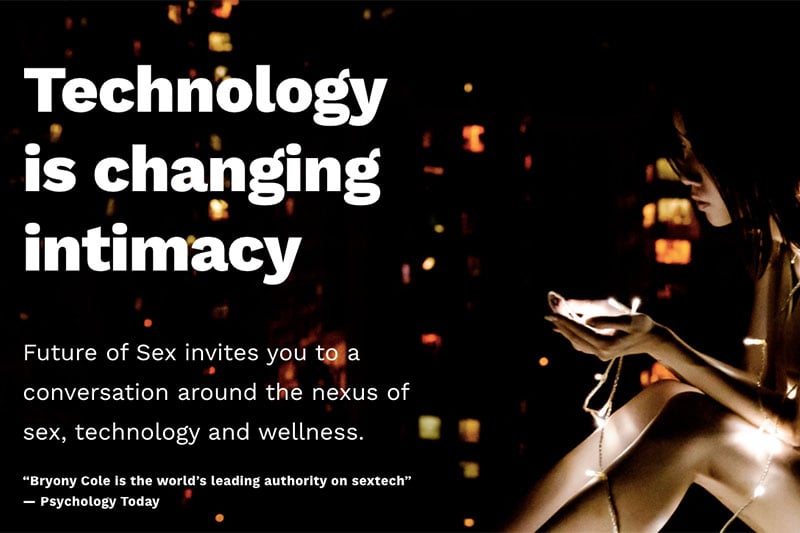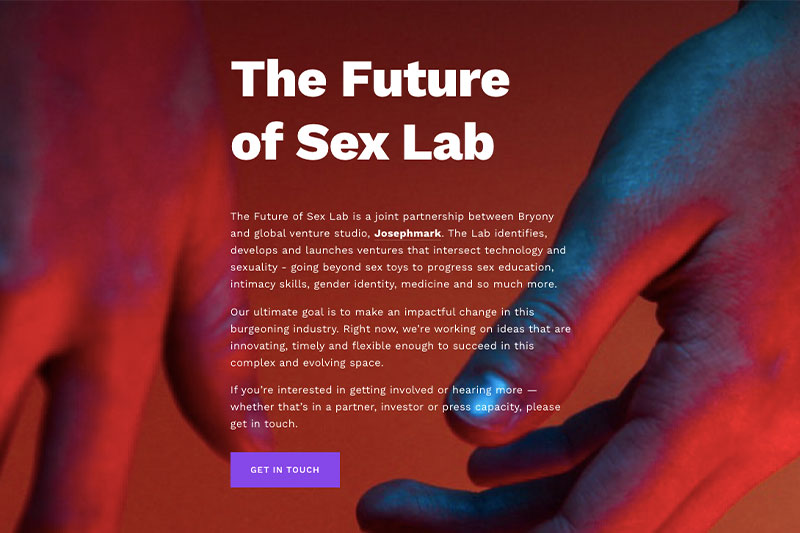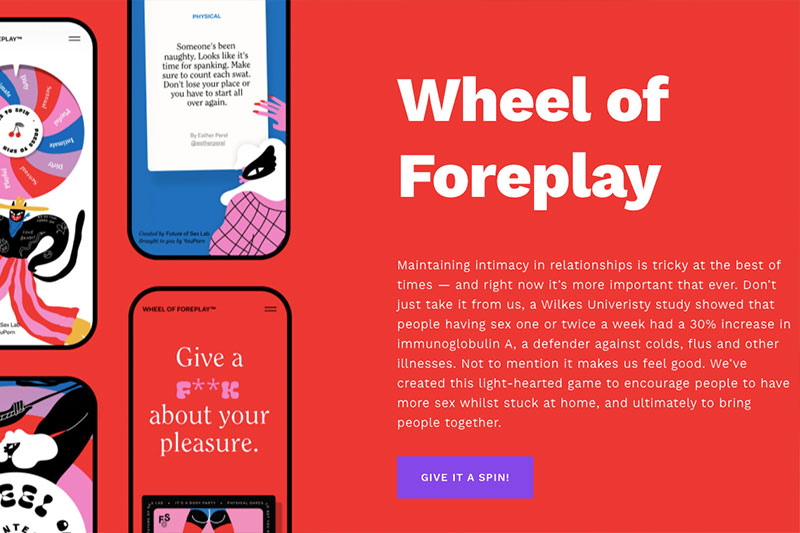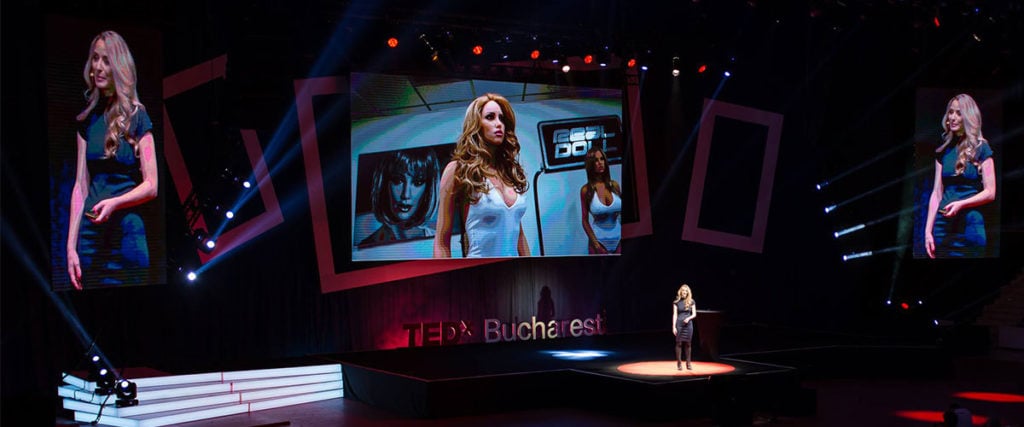Sextech expert Bryony Cole shares exclusive insights into the radical impact technology has had on intimacy, from stigma to pornography.
When you first hear the term ‘sextech,’ you probably think of Tinder, VR pornography, or even robot girlfriends. And while you’re not wrong (meet Harmony, the world’s first AI sex robot), you’re also not right. In her interview with Dynamic Business, Australian podcaster and entrepreneur Bryony Cole explained, “Often, when people think of sextech, they just think sex, but sexuality really encompasses everything from orgasms and pleasure and relationships to education, health, crimes, assault reporting, medicine and gender identity.” As one of the earliest voices at the helm of the USD 30 billion industry, Bryony is commonly regarded as being the world’s leading authority on sextech, and has been sextech’s leading counsel for major publications like the New York Times, Vogue, and Forbes, and has appeared on Netflix, VICE, and The Today Show to discuss the impact technology is having on intimacy. She’s also the founder behind sextech intelligence platform Future Of Sex.
Launched in 2016, Future of Sex is pioneering sex-positive thought leadership through a variety of innovative media, exploratory labs, and immersive events. On top of that, they are working on catalysing the next generation of sextech entrepreneurs through their wildly successful global hackathon program. We sat down with the sex futurist to talk about the rapid advancement of the sextech industry – and what that means for intimacy in our own relationships.

So, what is intimacy? Why is it still so stigmatised to talk about how we receive pleasure?
Yeah, great question. So, when we think about intimacy, the most obvious (and probably most stigmatised) thing we think of is sex – but there’s so much more to intimacy than just the physical act of sex. Intimacy is a physical, emotional, intellectual and shared connection. In spite of this, ‘intimacy’ often gets lumped into this category of sex that centres around the physical act itself, resulting in us associating it with things like pornography and the dark web. And these things (assault reporting, human trafficking, etc.) are extremely negative, so I think that’s why the subject has become so stigmatised and so difficult to talk about at a business and professional level. And then on a personal level, I think we don’t have the education around intimacy that we need in order to be able to talk about it comfortably. There are so many secrets surrounding our bodies and so much shame that comes with talking about our bodies and our needs because cultural institutions, religion and politics don’t allow us to learn about sex in a way that gives us permission to talk about it or have those conversations with the people that we probably should be having it with the most. And that’s the people we have sex with.
What are your thoughts on the current state of sex education?
Sex education is a global problem. At the moment, a lot of the education curriculums are behind as they just focus on the foundational aspects of sex (such as the anatomy). When we talk about sex education, we’re really talking about sexuality. So we should also be teaching the things that make sex really great such as communication, intimacy, empathy, and listening skills.
And then there are other aspects of education that are largely left out, for example, the subject of consent, as well as technology in the context of sexuality and intimacy (i.e. sexting, revenge porn, and dating apps).
You might also like LUÜNA: Tackling Stigma, Shame & Silence Around Periods Across Asia
So, how did you initially get into sextech?
Everyone has a different reason for that as it’s an industry that largely threads together both a personal and a professional narrative. For me professionally, I was working in big tech organisations and startups focusing on how technology was intersecting with society. At one point, I was working with Microsoft and startups like Yammer and Fuze and really talking about the future of work in the context of how the office and technology intersect. It was while I was freelancing and looking into what the future of nightlife might look like that I initially stumbled into sextech. I met these guys that were designing these virtual reality simulations of hot tubs and supermodels. It both concerned and fascinated me, and made me wonder what was going to happen to relationships in the future. From that moment, I thought, ‘There’s something in here. Something big is coming.’ And I began the Future of Sex podcast from that moment. I had somehow stumbled upon this 30 billion dollar sextech industry that, it turns out, encompasses so much more than what I initially thought. And I was excited to be an early voice in the sextech industry!

What’s the most surprising insight that you took away from your podcast?
I think the biggest surprise was that so many women were involved in the industry. It was something I had no idea about when I started. Growing up, I felt like I didn’t have a voice and didn’t really understand immunity and the importance of protecting myself in the workplace, which I think is such a common tale. So in the beginning, I thought it was these guys that were at the helm of the sextech industry. And the biggest surprise was that they weren’t. In fact, it was this community of women with shared values who were really focused on empowering women by designing products and services for themselves, their bodies and their voices that were really driving the industry.
I think it’s safe to say that personal experiences with stigma and shaming have brought a lot of women forward into the sextech industry. Do you have any personal experiences that you can share with us?
I think the biggest experience for me starts when I was about 11 years old. I distinctly remember going into Target with my mum. It was the first time I was going to buy a bra and I was so excited! I remember coming home and like telling my parents, ‘Oh my God, I’m a woman now! Can you take photos of me?’ It’s completely embarrassing and cringe-worthy to think about now, but I remember that being such a positive message. And feeling like, sadly, that was sort of the only positive message from then on as I went through puberty.
At the time, I had developed physically, but mentally, I hadn’t really developed and hadn’t been given the tools to understand my sexuality and self-expression. I remember people looking at me differently – especially older men – and not really understanding what that meant, but having this sense of like, I’m doing something wrong. Then I feel like that carried on into high school, where everyone had these cases of harassment or non-consent. Sadly, I think most women have had those experiences of wanting to remain small – small physically, small in voice, and not ruffle any feathers or cause anything that might lead to an unsafe situation. And that feeling followed me into university and into the workplace.
What changed?
It wasn’t until I was past 30 that I got to the point of seeing that opportunity of like, ‘Oh, wow! They’re women and they’re talking about sex without shame.’ After years of feeling like I had to be quiet in all these other scenarios that weren’t even related to sex, here was this opportunity to join these women that were talking about everything. And that felt really empowering. So it wasn’t this isolated experience, but this compounding effect of zero positive messages that made me go, ‘You know what? The last time I really felt excited about being a woman was 11 years ago. What does that mean?’

How do you think sextech can change this?
Sextech has provided us with this amazing tool for conversation. If we put ‘tech’ at the end of ‘sex,’ it gives us permission to talk about sex. Same with putting ‘The Future of’ in front of ‘Sex,’ like with my podcast. It allows me to access really big audiences which are predominantly white, cis, heterosexual males. We have diverse voices talking about sexuality, from women to people of colour. I also think there’s an enormous opportunity with technology to really enhance people’s lives, not only with regards to sexual pleasure and sex education, but also tools for human trafficking, sex trafficking, and sex crimes have been developed, thanks to innovation in technology.
As we become increasingly reliant on robots in our daily lives, how is the trivialisation of sex robots and dolls dangerous for society?
I think that’s it’s very similar to mainstream pornography in that it represents a certain type as the ideal. In my view, porn is the McDonald’s of sex. It’s something that you wouldn’t eat every day or consume every day, but it exists. And I think, in the same way, these tools and technology serve a purpose. The danger is when they come in to replace or supplant a human – it does a disservice if we’re promoting just one archetype of a female form. There is a serious side to it where we need to be considering the technology and the tools that we’re developing. And I don’t think anyone has the answers. There needs to be some sort of ethics committee in sextech that doesn’t exist yet.
Is sextech heavily regulated?
There’s so little regulation – you see this play out with revenge porn, the crime of non-consensual sharing of images. There’s a huge cultural lag in terms of people and society’s attitudes, but also an infrastructure lag to trial offenders. There’s a serious need for increased regulation and digital boundaries, as well as a set code of ethics for this industry.

So, I went on OMG Yes and it’s quite limited in terms of it being very heterosexual. It’s about penetration. It’s about gender binaries…?
This is where the future is going. When we look back at the last couple of cultural movements, like #MeToo and #TimesUp, they were so female-centric and hetero-centric. And I think that’s what buoyed these startups to start emerging and built this women sextech community in the last four years. What we are seeing now are all these laws and cultural movements around trans people, people of colour, different sexualities, and different identities creating a new space for entrepreneurs to come in and step up.
If you look at Salty, their magazine is a really great example of non-binary information, education, and perspectives. It does such an excellent job of being the cultural base of this new movement whilst also trying to monetise, which I think is really hard right now. And then, outside of that, looking at products now that are moving into that non-gendered sector, there’s still a lag. Yes, there are opportunities now but there’s always a lag. If you look back at the kind of messaging we received in the ‘90s through shows like Sex and the City, it was all about vibrators and penetration, which is so heterosexual. But if you look at Netflix now, there are so many shows that are about sex like Sex Education, Big Mouth and Euphoria, for example.
How do you think mainstream media portrays AI?
In terms of how the media portrays technology and sex, there’s been an insatiable appetite since ‘70s sci-fi for this concept of a virtual girlfriend and/or sex robot. For some reason, they’re not exhausted with that, so ‘sex robots’ continue to be a very common trope. I think this is because we find it so fascinating that something could actually replace us in what seems like such an essential part of our being, which is intimacy. So sex robots, VR porn and vibrators seem to be the obsession of the media whenever I talk to them about sextech, when my mission is to really look at all these other areas that are being ignored.
Do you think sextech will become so mainstream that it will replace human connections?
No! I would say that there is always going to be a certain subset of people that will be more inclined towards technology as their companion, but ultimately the human spirit is about human connection. We’re in this period now where we’re seeing what it’s like to not be around other humans. The greatest thing about being human is our experiences and having the ability to be spontaneous and have intuition, creativity, and imagination – things that are still quite hard for technology to replicate.

Currently, millions around the world are isolating themselves in accordance with their government’s social distancing measures. Do you have any examples of companies innovating during this strange and unfamiliar time?
Yes, at Future of Sex, we’ve developed a game called Wheel of Foreplay, a fun and innovative mobile app designed to encourage intimacy between those co-isolating. Currently, there are a lot of couples who are co-isolating and, with that, comes a fear of losing a sense of play. In times like this, people are looking for either fun playtimes or guidance as to what they can do. There are so many different outcomes here that we haven’t planned for around intimacy and what a relationship will look like out of this. For example, people in the UK have been instructed to stay home, which is testing new relationships by rushing couples into deciding whether they want to move in together at a much earlier stage than usual. It’s kind of like living in a reality show!
So, sextech is needed more now than ever?
Yes, it’s a really interesting and innovative time for sextech. In the toy sector, we’ve seen a 30-40% increase. People are buying things that they wouldn’t have experimented with before. In the past, they may have bought, say, a bullet vibrator, but now they’re open to trying different styles of vibrators and making a second or even third purchase. And for men, there are those who wouldn’t ever have tried a fleshlight or vibrator before but are now more open to trying those things. So ultimately, I’m optimistic that this global situation will help normalise the conversation around sex because we’ve all had this chance to pause and explore our bodies and explore one another – but that’s a very optimistic outlook.
Related Articles
This Australian CEO is Using Data to End the Global Gender Violence Crisis
But First, No More Stigma: Curing Hong Kong’s Mental Illness Epidemic
Ida Sports: How Women’s Football Shoes Are Challenging Gender Inequality





